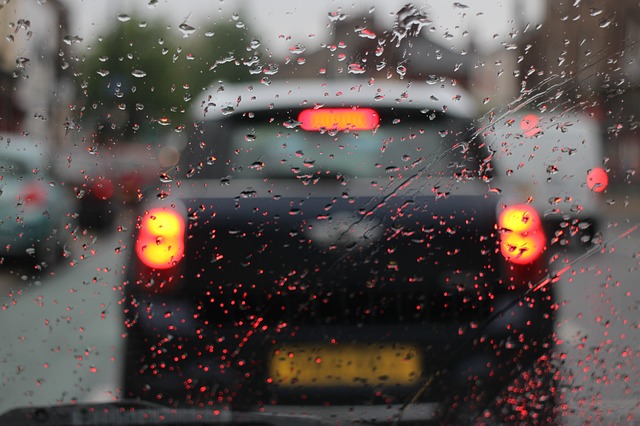Nearly half (46%) of all weather-related car accidents — more than 700,000 a year — are due to rain.1 As we experience more soggy weather, it’s imperative that all drivers are schooled on how they can safely maneuver their vehicle and avoid weather-related auto accidents, which often cause car insurance rates to rise.
Here are some tips for driving in the rain:
- Exercise caution when rain follows hot, dry spells. Engine oil and grease build-up on roads and highways over time, and when combined with precipitation, you’ve got the equivalent of an automotive Slip ‘N Slide. Road conditions may improve after the season’s first rain washes away most of the grime, but you’ll need to still exercise caution when driving in the rain.
- Slow down. Wet pavement causes tires to lose traction and vehicles become more difficult to handle.
- Avoid standing water on roadways. Not only can you hydroplane and lose control, but you can impair your vision and other drivers’ visibility by splashing through puddles. Moreover, standing water often shields potholes and debris from view and it can reduce the effectiveness of your vehicle’s brakes.
- Drive in the tracks of the car in front of you. This allows the vehicle ahead to displace any standing water that’s on the road.
- Increase your following distance. Slick roads, wet brakes and reduced visibility can lead to collisions. Give other vehicles plenty of room and brake early with reduced force.
- If your car begins to hydroplane, do not brake or turn the wheel abruptly as this may cause your vehicle to go into a skid or spin. Take your foot off the gas and keep the wheel straight until your car reclaims traction. Brake gently if needed.
- Don’t use cruise control. It can cause your car to accelerate when hydroplaning and reduces driver attentiveness.
- Grip the steering wheel with both hands to maximize vehicle control. This means putting down your cell phone (remember, texting while driving is still illegal in 35 states) coffee, makeup, shaver, sandwich or anything else that takes your hands off the wheel and eyes away from the road.
- Keep your windshield wipers in tip-top shape. Winter cold can wreak havoc on your blades, so get them checked before rainy seasons arrive.
- Defog your windows. Precipitation can cause your windshield to quickly fog up, so use the front and rear defrosters to maximize visibility.



